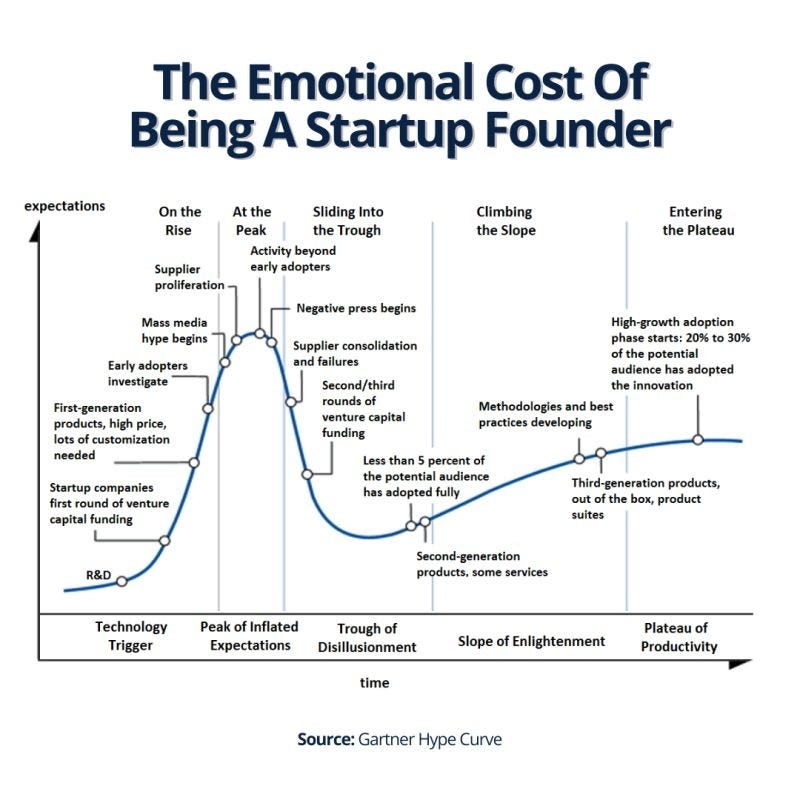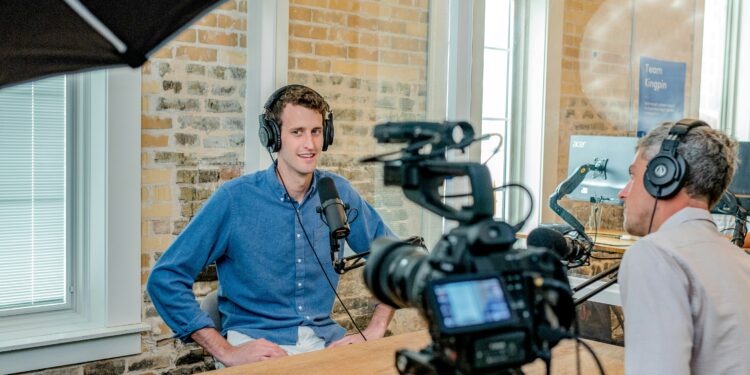The US Armed Forces has a problem with soldier suicide and depression.
In early 2013, the official website of the United States Department of Defense announced the startling statistic that the number of military suicides in 2012 had far exceeded the total of those killed in battle—an average of nearly one a day. A month later came an even more sobering statistic from the U.S. Department of Veterans Affairs: veteran suicide was running at 22 a day—about 8000 a year.
The situation became so dire that the U.S. Secretary of Defense called suicide in the military an “epidemic.”
According to one Marine veteran, artificial intelligence, and machine learning (AI/ML) technology is transforming every field, from national security to health care and education, and these technologies also have the potential to revolutionize mental health care and suicide prevention for veterans. Veteran organizations — including the VA and nonprofits — and those commercial organizations that work with and support veterans — should consider modern technology as the missing piece of the puzzle to proactively identify evidenced-based red flags before the struggling veteran becomes overwhelmed. Moving upstream in detection and informed proactive mitigation will change the current models that focus on making it easier for the veterans to seek help.
The U.S. defense secretary is facing scrutiny after failing to immediately disclose to the White House his recent prostate-cancer diagnosis and a related hospitalization, a breach of protocol for which he has apologized.
But while the secretary, Lloyd J. Austin III, as a cabinet member, faces certain expectations about what he must disclose publicly regarding his health, and when he should do it, mental health experts who work with patients who have serious illnesses, such as cancer, say that reticence is common — even in the era of oversharing online.
Medicine has its problems too. It’s estimated that at least 400 U.S. doctors kill themselves every year. Many are struggling with depression, anxiety, or addiction. A top emergency room doctor at a Manhattan hospital that treated many coronavirus patients recently died by suicide.
Now, add to the list entrepreneurs. Depressed serial entrepreneurs are coming out of the closet and advocating for awareness and change.
Tech billionaire Elon Musk revealed he has Asperger’s syndrome as he hosted “Saturday Night Live” — claiming to be the first with the condition to front the show, “or at least the first to admit it.” Musk, who later poked fun at Dogecoin, causing the cryptocurrency to instantly fall in value, opened up about sometimes saying or posting strange things on social media, explaining that’s “just how my brain works.”
Contrary to widespread belief, poor self-esteem is a component of some entrepreneurs that drives compensatory behaviors that are misinterpreted as egotistical, self-centered, or narcissistic. The results are isolation, depression and loneliness or a feeling that they are imposters.
The commonality of these groups seems to be a “warrior mentality” that encourages soldiers, doctors and entrepreneurs to suck up and repress feelings of anxiety, inadequacy, or depression, to “fake it till you make it” or to hide things for fear of retribution or adverse consequences. The military, medical and entrepreneurial cultures see those with self-doubt as weak or cowardly.
In addition, at least for successful serial entrepreneurs who thrive on success, like to drive fast, take chances, make money, and learn something along the way, their innate makeup might make them susceptible to breakdowns. Few want to talk about the loneliness of success, but it is pervasive, and the headcount is rising.
However, there are at least four personality types of entrepreneurs, and we all have a fallback pattern.
On the other hand, hypomanic ADHD entrepreneurs are also coming out and turning their behavior into the ADHD Advantage. You can also be more creative if you stop paying attention so much. Research is finding that greater distractibility and a reduced ability to focus—what scientists call decreased cognitive control—is often associated with greater creativity in problem-solving. But, being married to an ADHD entrepreneur can kill a marriage, so here are some coping tips for you both.
Here is how one CEO with dyslexia and ADHD runs his company. Here’s another.
If you think you have ADHD, here are some tips on how to deal with it.
If you have Asperger’s Syndrome, Peter Thiel wants to hire you. In his book, The Autistic Brain, Temple Grandin explains the positive side of autism and those with autistic spectrum disorders (ASD) or high function autistics (HFAs): 1) attention or an obsession to detail, 2) being able to see the forest from the trees and patterns others don’t see and 3) creativity that disregards and frequently challenges the convention wisdom or status quo.
In her new book, Andy Warhol was a Hoarder: Inside the Minds of History’s Great Personalities, medical and science journalist Claudia Kalb looks at twelve famous figures and weighs the evidence suggesting that each suffered from a different kind of mental health condition. The table of contents could be mistaken for the diagnostic and statistical manual of mental disorders.
One common way of assessing the presence of psychopathic traits in people is to use an assessment known as the Hare Psychopathy Checklist. Here’s a look at some of the traits it lists to see whether they can cause destruction or promotion in a work environment.
Or, maybe you are suffering from Childhood Emotional Neglect (CEN).
Do You…
1. Sometimes you feel like you don’t belong when with your family or friends.
2. Pride yourself on not relying upon others?
3. Have difficulty asking for help?
4. Have friends or family who complain that you are aloof or distant?
5. Feel you have not met your potential in life?
6. Do you often just want to be left alone?
7. Secretly feel that you may be a fraud.
8. Do you tend to feel uncomfortable in social situations?
9. Often feel disappointed with, or angry at, yourself?
10. Judge yourself more harshly than you judge others.
11. Compare yourself to others and often find yourself sadly lacking?
12. Find it easier to love animals than people?
13. Often feel irritable or unhappy for no apparent reason?
14. Have trouble knowing what you’re feeling?
15. Have you trouble identifying your strengths and weaknesses?
16. Sometimes feel like you’re on the outside looking in.
17. Believe you’re one of those people who could easily live as a hermit?
18. Have trouble calming yourself?
19. Feel there’s something holding you back from being present in the moment?
20. At times feel empty inside?
21. Secretly feel there’s something wrong with you?
22. Struggle with self-discipline?
Emotional neglect can damage self-esteem that translates later in life into narcissism and a lack of empathy.
And then there is loneliness and workaholism. A workaholic is a work-obsessed individual who gradually becomes emotionally crippled and addicted to power and control in a compulsive drive to gain approval and public recognition of success. These driven men and women live a Gerbil-wheel, adrenalin-pumping existence rushing from plan A to B, narrowly fixated on some ambitious goal or accomplishment. Eventually, nothing or no one else really matters.
In addition, there are other unsung heroes. One of the most critical (and most unsung) roles in an entrepreneurial company is not the founder or owner—it’s the role of that person’s significant other or spouse. This has always been true, but the challenges (and importance) of these individuals is even greater and more crucial in the challenging business climate we currently face.
“If an entrepreneurial company fails, it can often take the family’s finances down with it, which can lead to marital troubles or even trigger divorce.”
While not necessarily pathologic, unhealthy habits can torpedo your efforts to build high-performance teams or, worse, lead to career suicide. Here are some typical ones.
Entrepreneurial psychopathologies and behavioral disorders are common in entrepreneurs. Like doctors and war fighters, they have a warrior mentality.
That means if you have a preexisting condition, you should identify and manage it so that entrepreneurship will not exacerbate it.

While the concept of neurodiversity says there is no “right” way of thinking or behaving, the fact is that some styles and traits are more common than others (i.e. neurotypical), and these are what shape our behavioral, social, and cultural norms. So, for people whose traits and behaviors are at odds with these norms, the traditional workplace can be an endless source of stress and frustration. The findings of recent employment studies speak for themselves.
Everyone pays the price for their choices, whether they accept it or not. But our infatuation with successful entrepreneurs comes at a price we would rather not see, let alone accept and the results are soldiers fighting the business wars and medical students coming home in body bags.















